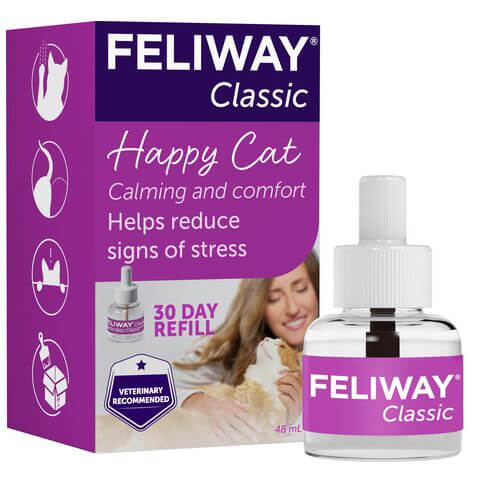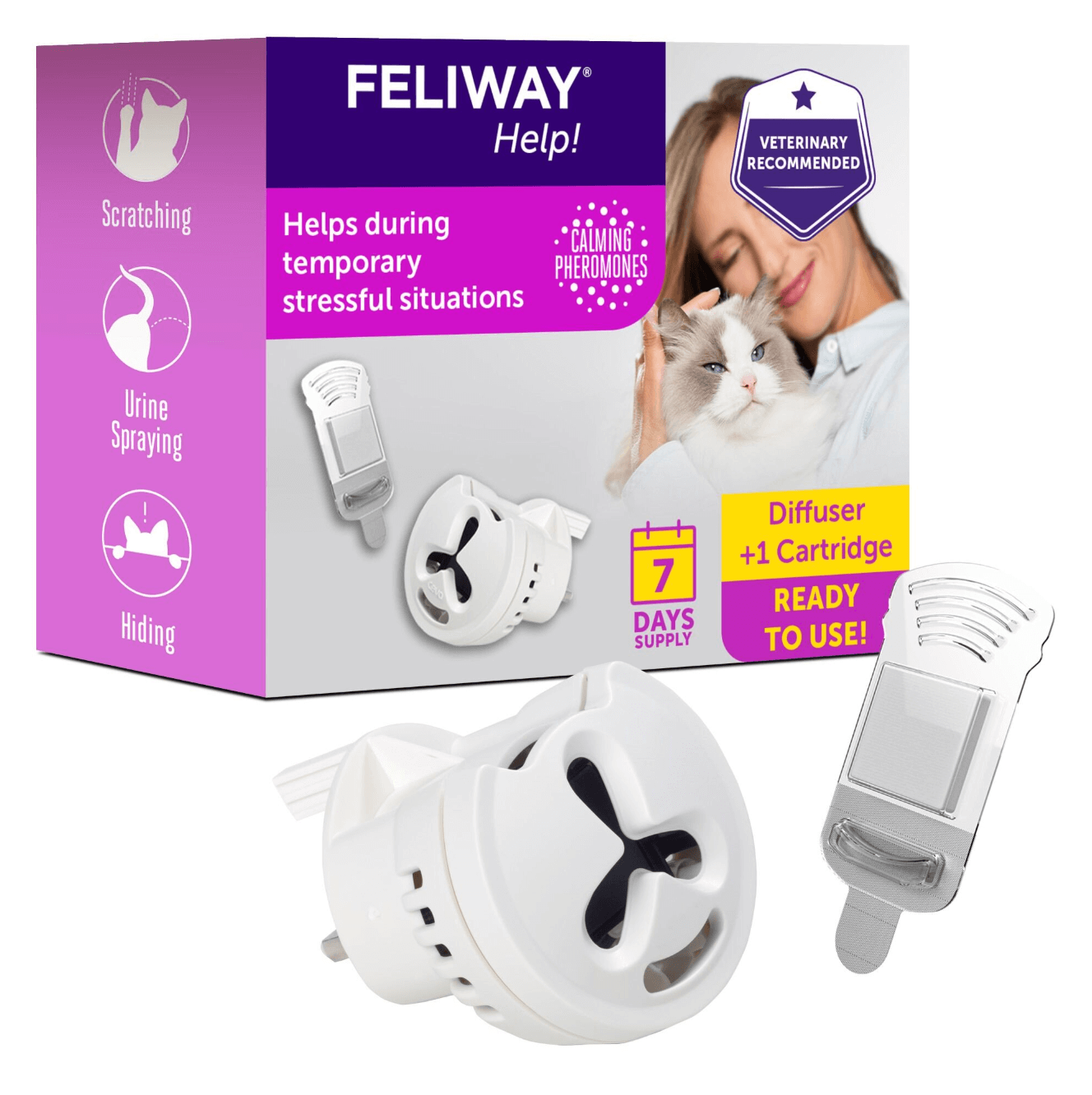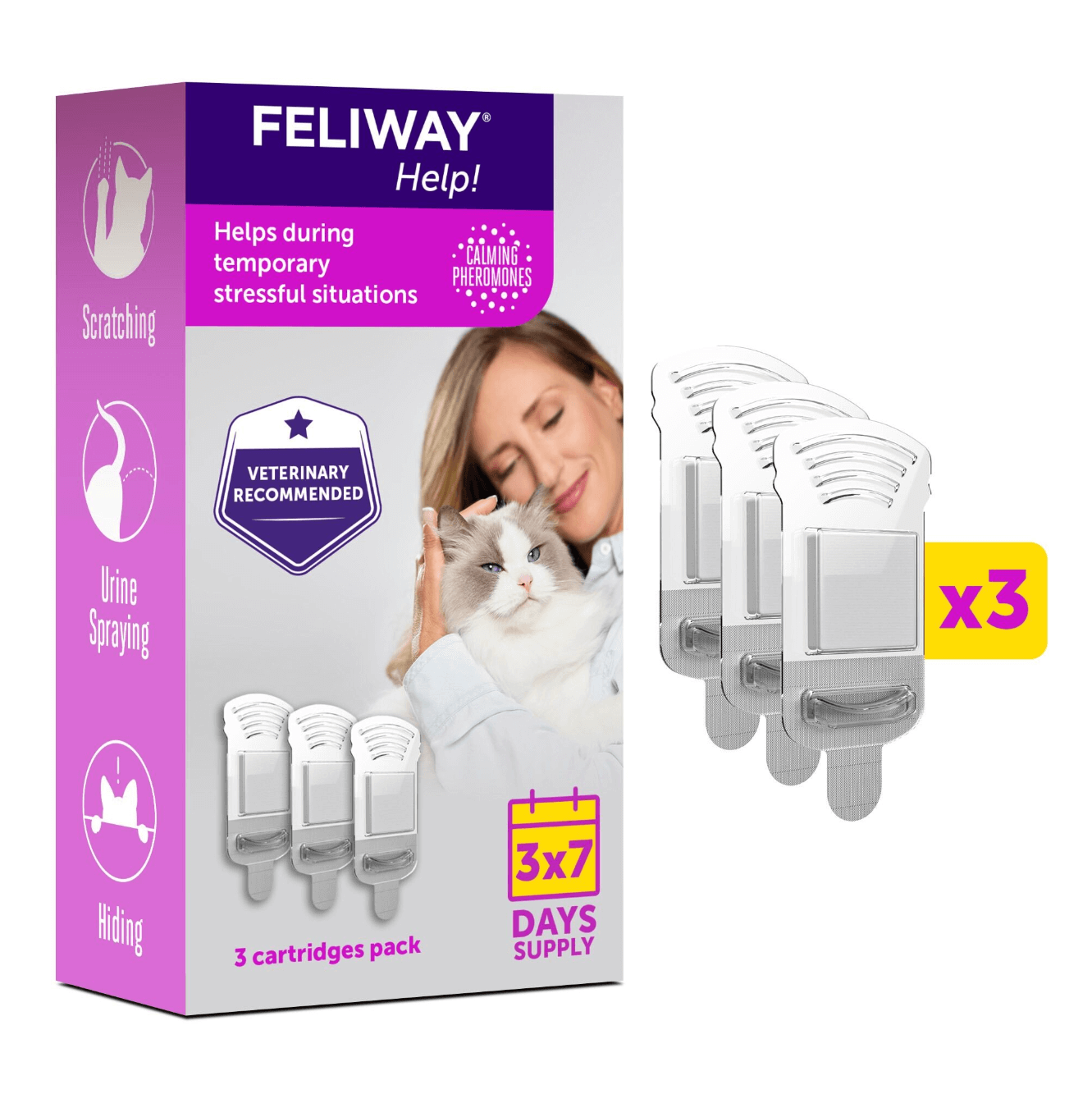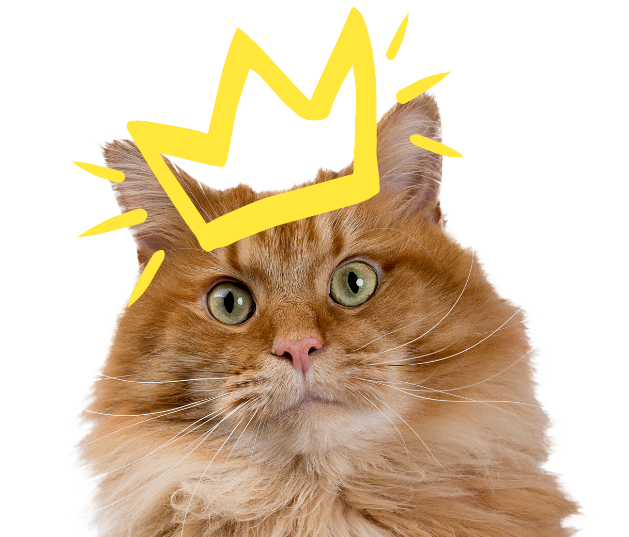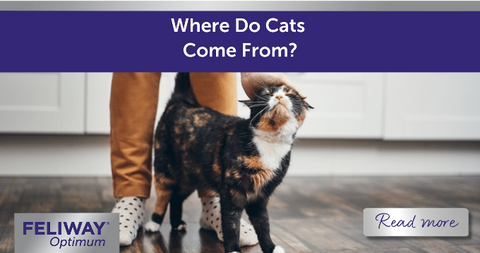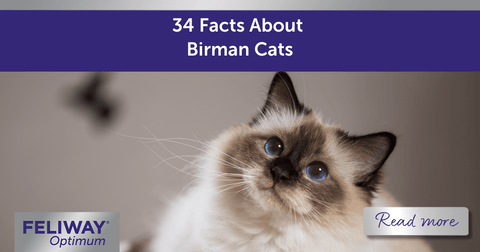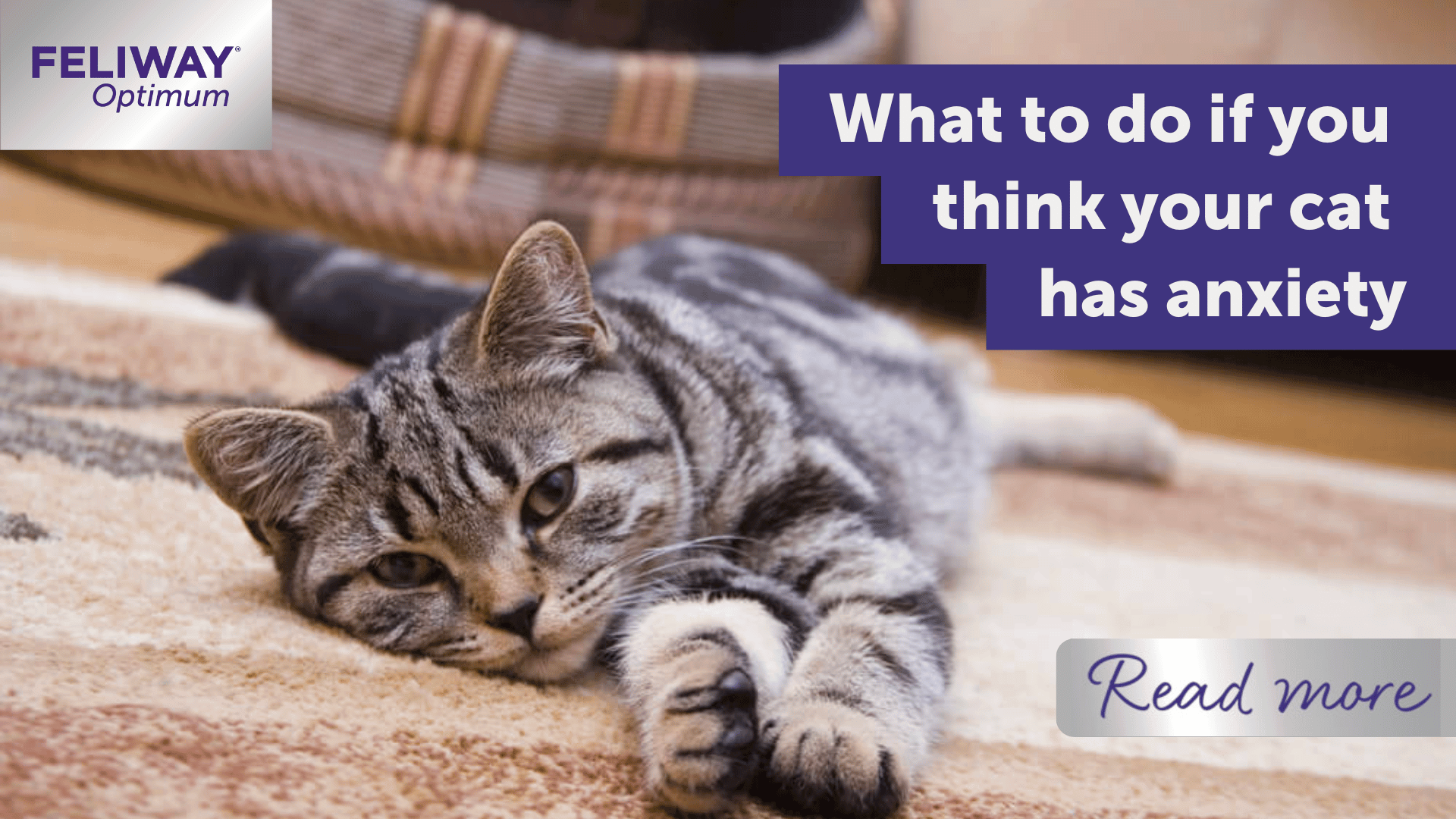
What to do if you think your cat has anxiety
Anxiety occurs when an animal anticipates something unpleasant or negative might happen. They will express their anxiety in different ways and may try to develop coping strategies, and it is important as owners that we understand whether our dog or cat might be anxious and what we can do about it.
Sometimes it can be difficult to spot the signs of anxiety in cats, but most cats will typically exhibit some of the following behaviours when they feel anxious:
- Increased amount of hiding behaviour
- Less social interaction and generally appearing more withdrawn
- Increased grooming – possibly even creating bald patches
- Toileting outside of the litter tray or urine spraying
- Change in appetite
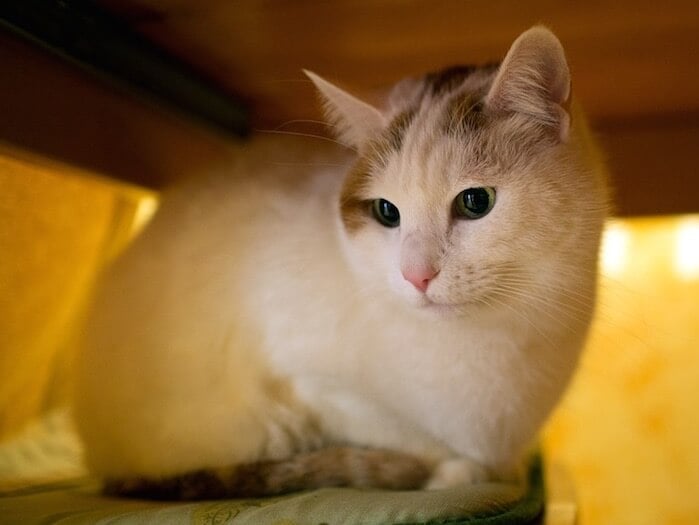
Signs of anxiety are not limited to these behaviours and it is also important to realise that these signs are also indicative of an animal experiencing pain. Therefore it is really important that if your cat is showing any of these signs that you first talk to your vet because medical issues will need to be ruled out.
Ideally, we want to try to identify what is causing your pet anxiety and you might need the help of a clinical or veterinary behaviourist in order to help you do this. Your vet can refer you to one.
If you are able to identify what it is that is causing your pet anxiety, it is important never to force them to face it. This will only cause them to feel more anxious due to not feeling in control and may erode their relationship with you. Instead, try to provide them with additional coping strategies so that they feel more in control of their environment or the situation:
- Actively give them more space away from whatever it is that is causing anxiety
- Make sure they feel safe – no animal’s anxiety will reduce unless they do
- Actively provide your cat with additional hiding places and also plenty of high climbing places
- Provide your cat with additional resources in different locations – e.g. more litter trays, water bowls and feeding locations away from other cats or pets in the home.
A structured behaviour modification programme that addresses your pet’s anxiety and, if necessary, help you to gradually expose them to situations that are inducing anxiety in a controlled way (to avoid making it worse) can be done under the guidance of a clinical or veterinary behaviourist - research here for your nearest member.
FELIWAY Optimum is the ideal support tool to use alongside Rosie's advice. It is clinically proven to help cats with all common signs of stress.
Blog written by Rosie Bescoby.
Rosie Bescoby is a Certified Clinical Animal Behaviourist with a degree in Psychology and Zoology and a Post-Graduate Diploma in Companion Animal Behaviour Counselling, based in and around Bristol and North Somerset. Rosie is a full member of the Association of Pet Behaviour Counsellors, a member of the Association of Pet Dog Trainers, and registered as both a Clinical Animal Behaviourist and as an Animal Training Instructor with the Animal Behaviour and Training Council. For more information please visit: www.pet-sense.co.uk










